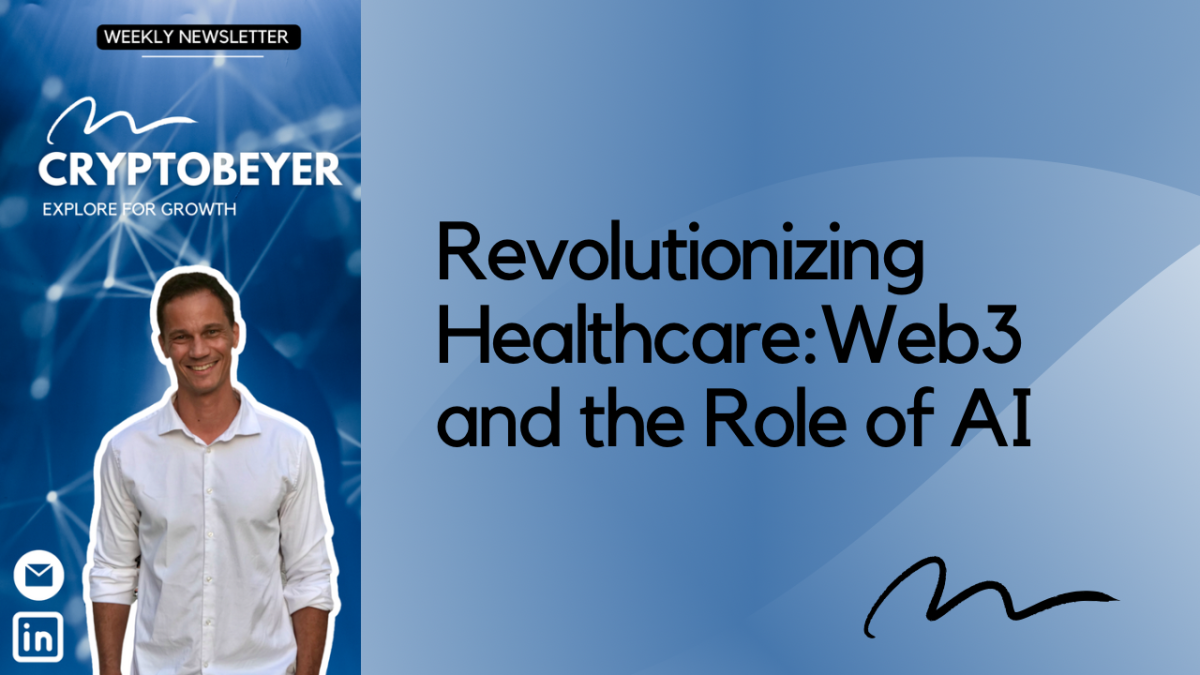Tech is moving quickly nowadays, and patients, healthcare workers, and the healthcare industry are benefiting. Two technological powerhouses, Web3 and Artificial Intelligence (AI), are solutions for an industry grappling with challenges. We are being promised a healthcare system that is not only more efficient and accessible but also (finally) intricately interconnected. Thank God! Let’s dig into it.
We have all tried an online doctor’s meeting. I would say it’s fast, easy, and cheap. We are now taking the next step. Telemedicine Web 3's decentralized networks are reshaping the face of telemedicine. The healthcare industry is not only brought directly to the doorsteps of patients but also giving patients firm control of their health data. Blockchain and smart contracts are lowering soaring costs of healthcare by streamlining administrative tasks, cutting overheads, and ultimately making healthcare services more affordable. Put simply, we are getting better healthcare with the use of blockchain technology and even incorporating AI in the mix.
The decentralized networks and blockchain technologies bridge gaps in shattered healthcare systems, ensuring consistent care and minimizing medical errors. I hope the days will soon be over for doctors missing vital patient data because of medical systems that are not connected to each other. Blockchain technology can securely store health data on the blockchain, and the individual can decide what information he or she would like to share with a doctor or a healthcare professional.
Furthermore, not everyone is able to access healthcare. Remember that universal access to healthcare, without discrimination, is a human right enshrined in the Universal Declaration of Human Rights. For example, some people live in rural areas and may have problems with transportation or have limited financial resources, and Web3 technology is effective in combating these problems. You get the picture.
Now we are adding AI to the mix. AI is awesome in enhancing diagnostic accuracy, personalizing treatment plans, and streamlining processes. I hear doctors every day saying they need help to have the time and knowledge to treat patients, and Web3 is a catalyst for exceptional advancements. Doctors with different skill sets can interact more effectively and with better information.
And now the big one. Picture the waiting room is completely filled with patients, and the doctor is stressed out. The automation of administrative tasks is a valuable solution for doctors who struggle to keep up with meeting and treating patients when the administrative load increases.
But the digitalization and Web3 process is not a walk in the park for the healthcare industry. However, Web3 solutions in healthcare lead to cost reduction for the healthcare industry if delivered and used correctly. It’s common that we fear what is new, and the healthcare industry and its personnel need education and support in implementing these new technologies. Yes, healthcare is a thriving Web3 consultancy business.
AI may also be used to assist research and clinical trials as patients can choose to share specific health data in a secure way without disclosing their entire medical history.
Yet, as we tread into this revolutionary territory, we need to be careful. Ensuring interoperability, safeguarding privacy and security, and addressing ethical concerns are pivotal for responsible healthcare innovation. The delicate balance between technological progress and ethical responsibility will define the success of this healthcare revolution, and this process will take some time.
But companies are already using this technology. Google's deep learning algorithm for diabetic retinopathy detection shows the possibilities of Web3. Johnson & Johnson Institute uses AI-powered VR modules for doctor training, while Subtle Medical collaborates with industry players to provide cutting-edge solutions. Arterys secures FDA clearance for cloud computing and deep learning in clinical settings, and Butterfly Network uses a handheld ultrasound device guided by AI. There’s more; Caption Health's AI-powered ultrasound for non-experts, Cleerly's coronary CT angiogram analysis, CloudMedX's personalized treatment plans, and Corti's emergency call analysis for potential cardiac arrests. DeepMind's medical image analysis…the list is long of companies driving change.
I am a health promotion professional working in the primary care setting, and I am interested in creating Web3 health-promoting patient care systems. Give me a call!
Web3 and its technology harnessing the power of AI can enhance medical diagnosis, patient engagement, administrative efficiency, and support people in healthy lifestyle changes. Furthermore, it can make the lives of nurses and doctors easier. When the demand for health services is high, time-saving initiatives and resource-enhancing solutions are vital ingredients for a solution. After all, healthcare professionals need a better working environment to be able to focus on what truly matters—patient care.

